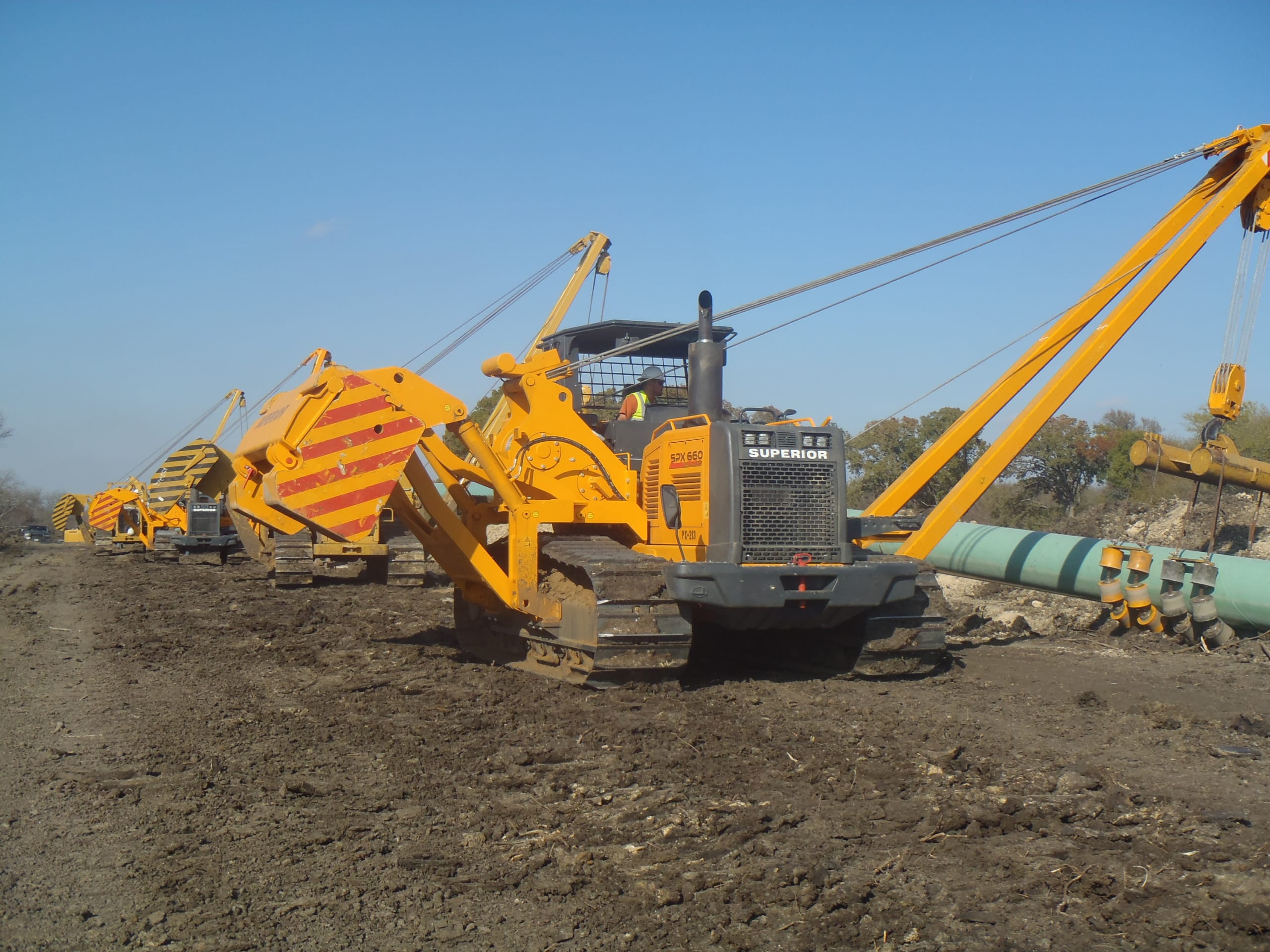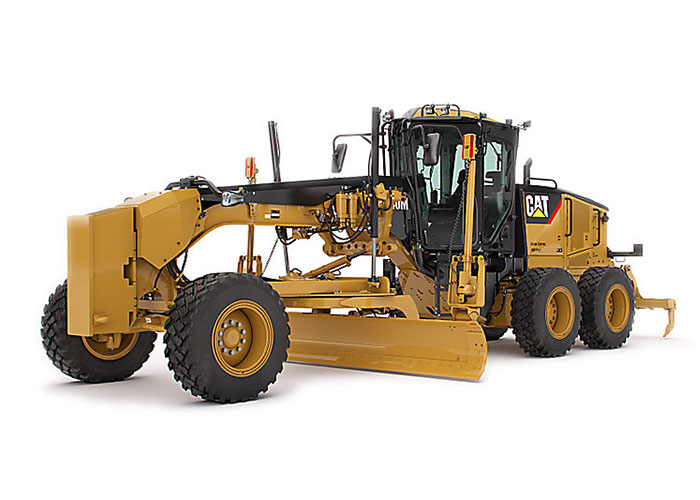Superior Oilfield pipeline equipment rentals vs owning machines: which saves more?
Wiki Article
A Comprehensive Overview to the Numerous Sorts Of Oil Field Equipment and Pipeline Equipment Available
The oil and gas sector relies heavily on specific tools for efficient extraction and transport. Various sorts of machinery, from drilling rigs to tank, play essential duties in this complicated procedure. Each tool serves distinctive functions that add to total operational success. Comprehending these components is necessary for any individual entailed in the market. As the market develops, so also do the modern technologies that support it. What improvements are on the perspective?
Drilling Rigs: The Backbone of Oil Exploration
Drilling rigs work as the vital machinery in the domain of oil expedition, enabling companies to accessibility hydrocarbon books hidden deep beneath the Planet's surface. These rigs come in various kinds, including land rigs, offshore rigs, and mobile devices, each made to operate in certain atmospheres. Equipped with innovative innovation, drilling rigs can pass through geological developments with accuracy, ensuring efficient source extraction. The architectural honesty and functional abilities of these rigs are essential, as they have to hold up against severe conditions and considerable pressures. The selection of an exploration rig affects the general project cost and timeline, making it a vital factor to consider for oil firms seeking to maximize their exploration initiatives and optimize performance in their operations.Pumps: Essential for Liquid Movement
In the oil removal procedure, the duty of pumps is considerable, promoting the activity of fluids throughout numerous phases of manufacturing. Pumps are crucial for transferring petroleum, water, and other liquids from underground tanks to the surface area and after that through pipes to refineries. They can be found in various types, including centrifugal, positive displacement, and completely submersible pumps, each serving particular objectives based upon the fluid features and operational requirements. Centrifugal pumps are generally utilized for their efficiency in high-flow applications, while positive variation pumps succeed in dealing with viscous liquids. The selection of pump influences general performance, operational safety and security, and maintenance prices. Correct selection and upkeep of pumps are crucial for enhancing production and decreasing downtime in oil area procedures.Valves: Controlling Circulation and Pressure

Valves play an essential function in handling the circulation and stress of liquids within oil areas and pipelines. Different kinds of valves serve distinctive applications, each made to satisfy particular features essential for efficient procedure - Superior Rentals Contact. Recognizing the features and usages of these valves is essential for maximizing system efficiency and safety and security
Kinds of Valves
Necessary parts in oil area procedures, shutoffs play a crucial role in controlling the circulation and stress of liquids within pipes and tools. Numerous kinds of valves are used to meet the diverse requirements of oil and gas production. Common kinds consist of gate shutoffs, which offer a straight-line circulation and very little stress decrease; globe shutoffs, recognized for their strangling abilities; and round valves, recognized for their fast on/off control. Additionally, check valves protect against backflow, while butterfly shutoffs use a lightweight solution for managing flow. Each valve kind is developed with certain products and setups to hold up against the rough problems typically discovered in oil areas, ensuring integrity and effectiveness in procedures. Recognizing these types is crucial for efficient system management.Valve Applications and Functions
While various kinds of valves serve unique objectives, their primary applications revolve around regulating circulation and stress within oil and gas systems. Valves such as entrance, world, and round valves manage fluid activity, making sure peak performance and security. Entrance shutoffs are generally utilized for on/off control, providing marginal circulation resistance. World valves, on the other hand, offer specific circulation policy, making them ideal for strangling applications. Round valves are preferred for their quick procedure and limited securing abilities. In addition, stress safety valve are critical for avoiding system overpressure, protecting devices honesty. In general, the suitable option and application of valves boost operational performance, making certain the trustworthy transportation of oil and gas with pipes and handling centers.Compressors: Enhancing Gas Transport
Compressors play a critical function in the efficient transport of gas, sprinkler line repair making certain that it moves smoothly through pipes over lengthy distances. These gadgets boost the stress of natural gas, enabling it to overcome friction and elevation modifications within the pipeline system. Additionally, compressors promote the balancing of supply and check my reference demand, fitting changes in consumption and manufacturing prices. Different kinds of compressors are utilized in the market, including centrifugal, reciprocating, and rotating screw compressors, each offering distinctive benefits based on the operational requirements. Regular maintenance of these compressors is crucial to make the most of efficiency and minimize downtime, ultimately contributing to a dependable gas transport network. Their important feature highlights the significance of compressors in the overall oil and gas framework.Storage Tanks: Safe and Reliable Fluid Administration
Reliable transport of gas relies upon numerous supporting systems, among which is the appropriate monitoring of storage containers. These tanks play an essential function in securely containing liquids, making sure that functional efficiency is preserved while minimizing environmental threats. Built from resilient materials, they are created to stand up to high pressures and harsh elements. Effectively sized and purposefully situated, tank promote the smooth circulation of gas and other liquids, preventing traffic jams in supply chains. Normal upkeep and monitoring are vital to discover leakages or structural concerns, advertising safety and compliance with regulative standards. Eventually, the effective management of storage space containers is critical for the general stability and reliability of the oil and gas market's fluid handling systems.
Pipeline Systems: Framework for Transportation
Pipeline systems function as the backbone of the oil and gas industry, promoting the efficient transportation of hydrocarbons over large distances. These systems contain numerous parts, consisting of pipelines, shutoffs, pumps, and compressors, all diligently made to assure smooth circulation. The materials utilized in pipeline building, typically steel or high-density polyethylene, are picked for resilience and resistance to rust. Pipeline networks can cover across land and water, connecting manufacturing websites to refineries and circulation. Additionally, advanced technology allows real-time surveillance of flow rates and pressure levels, enhancing functional effectiveness. The strategic positioning of these pipes lessens ecological effect while making the most of resource access, thus playing an important function in conference power needs globally.Safety Equipment: Guaranteeing Worker and Environmental Security
The operation of pipeline systems, while necessary for power transportation, also presents substantial safety difficulties for workers and the environment. Safety devices plays a significant function in pipeline companies near me alleviating these threats. Personal protective devices (PPE) such as headgears, gloves, and non-slip footwear safeguards employees from physical risks. Furthermore, gas discovery systems monitor for leaks, making sure that hazardous substances do not pose a threat to workers or the bordering ecosystem. Emergency shutdown systems are crucial for rapidly stopping procedures throughout a dilemma, preventing potential catastrophes. Spill containment products, consisting of absorbents and barriers, are essential for decreasing environmental effect. On the whole, spending in comprehensive safety and security devices is critical for preserving operational stability and safeguarding both employees and the setting in the oil and gas market.
Regularly Asked Inquiries
Exactly how Do I Select the Right Oil Field Equipment for My Job?
Selecting the best oil area devices involves reviewing project requirements, budget plan restrictions, and operational needs. Think about aspects such as tools reliability, compatibility with existing systems, and the provider's track record to ensure peak performance and safety.What Are the Maintenance Demands for Oil Field Equipment?
Maintenance demands for oil area devices consist of regular inspections, lubrication, and timely fixings. Operators must additionally stick to supplier guidelines, display performance metrics, and assurance conformity with safety and security regulations to enhance durability and performance.
Just How Can I Make Sure Compliance With Environmental Laws?
To ensure compliance with environmental regulations, companies must conduct routine audits, implement ideal methods, buy training, preserve appropriate paperwork, and remain upgraded on regulation (Superior Rentals Contact). Partnership with ecological firms can also enhance adherence to policiesWhat Is the Typical Life Expectancy of Pipeline Equipment?
The average life-span of pipeline tools normally varies from 20 to half a century, relying on aspects such as material top quality, environmental conditions, and upkeep methods. Regular evaluations can significantly influence durability and operational effectiveness.How Do I Securely Carry Oil Field Equipment to Remote Locations?
Delivering oil area devices to remote places needs careful preparation, consisting of course assessment, securing permits, using appropriate cars, and guaranteeing safety and security protocols are adhered to. Appropriate training and interaction among crews are essential for successful transportation.Report this wiki page